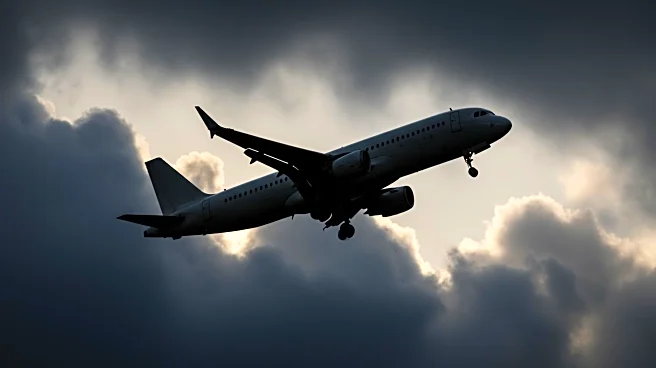What's Happening?
Spirit Airlines has issued a warning about its potential inability to continue operations, just months after emerging from bankruptcy. The airline is facing significant financial challenges due to weak domestic demand and increased competition, which have created a difficult pricing environment. As a result, Spirit's parent company, Spirit Aviation Holdings, saw its shares plummet by over 40%. The airline has been forced to furlough 270 pilots and demote 140 others to conserve cash. Additionally, Spirit's credit-card processor has demanded more collateral, threatening the airline's contract. To address these issues, Spirit plans to sell or monetize assets and reduce airport gate capacity.
Why It's Important?
The potential shutdown of Spirit Airlines could have significant implications for the U.S. aviation market. As a major low-cost carrier, Spirit plays a crucial role in keeping airfares competitive. Its exit could lead to higher ticket prices, affecting budget-conscious travelers. The airline's financial instability also highlights broader challenges in the aviation industry, including fluctuating demand and economic pressures. Stakeholders such as employees, investors, and consumers stand to be impacted by Spirit's uncertain future.
What's Next?
Spirit Airlines is exploring various strategies to improve its financial situation, including restructuring its route network and enhancing premium seating options. However, the airline acknowledges that these measures may not be sufficient to ensure its survival. The outcome of ongoing negotiations with stakeholders and efforts to meet liquidity requirements will be critical in determining Spirit's future. Travelers with bookings on Spirit are advised to consider travel insurance as a precaution.









